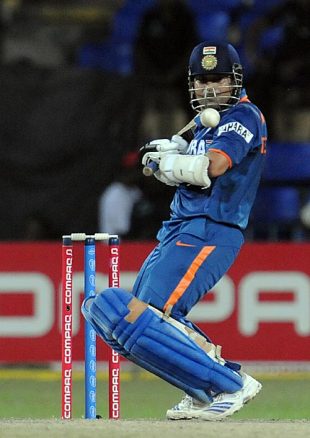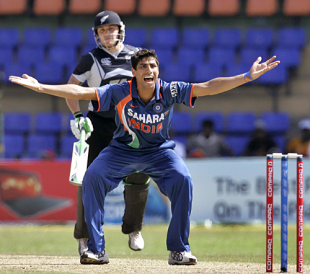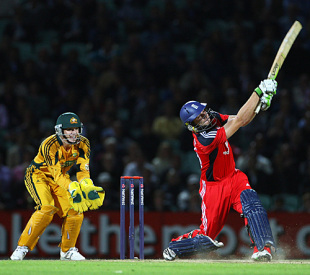The idea was mooted by Sachin Tendulkar last week.
"I quite like that idea, I believe South Africa may trial something along those lines," Richardson told BBC Sport. "This might work in day-night cricket where one team has to bat in day and the other at night. It provides something different and reduces the effects on the team who loses the toss and has to bat first on a damp wicket, for example."
Richardson believed the concept, discussed during the ICC's cricket committee annual meeting at Lord's in May, could breathe life into the 50-over format, which has been increasingly threatened by the rise in popularity of Twenty20 cricket.
Though two innings of 25 overs could lead to new strategies and even reduce the influence of winning the toss in favourable conditions, Richardson was eager to prevent results becoming predictable. His concern was that splitting the innings could take away scoring opportunities for the batsmen.
"I don't necessarily like the idea of playing two matches of 25 overs each with the openers batting again," he said. "The charm of one-day cricket is seeing someone batting at four and scoring a good hundred. If you bat in the middle order of a Twenty20 or a new 25-over innings, you're not to get much of an opportunity to hit three figures, one downside of the Twenty20 game."
The clamour for a fresh approach to the one-day game has grown considerably with players including Tendulkar 50-over games be played over two innings to provide similar overhead conditions for both teams. Tendulkar said the contests were becoming too predictable because results of "close to 75% of matches" could be predicted after the toss.
The England and Wales Cricket Board recently agreed to scrap the domestic Friends Provident Trophy, the only 50-over domestic cricket tournament, in favour of an expanded Twenty20 competition along with a 40-over format. Cricket South Africa are also likely to join the bandwagon as it considers changes to its 45-over competition.
However, Richardson said the experiment would have to be successful at the domestic level before changes could be made to the international game. "The bottomline is if we can come up with a product that is better than the existing one, then everyone would like to look at it," he said. "If it has been trialled successfully at domestic level, it may give the trial to give it the go-ahead at international level.
"The ICC has been proactive with ideas and innovations, like the powerplays. The idea of the 'super-sub' (scrapped in March 2006) wasn't as successful and got rid of quite quickly. One of the criticisms was that we trialled things at international as opposed to domestic level. Our tactics going forward are member countries trial changes first domestically and if they are successful, then we can take them on board at the international level."
The ICC's cricket committee is set to meet again in 2010 when the results of the experiment will be discussed.


